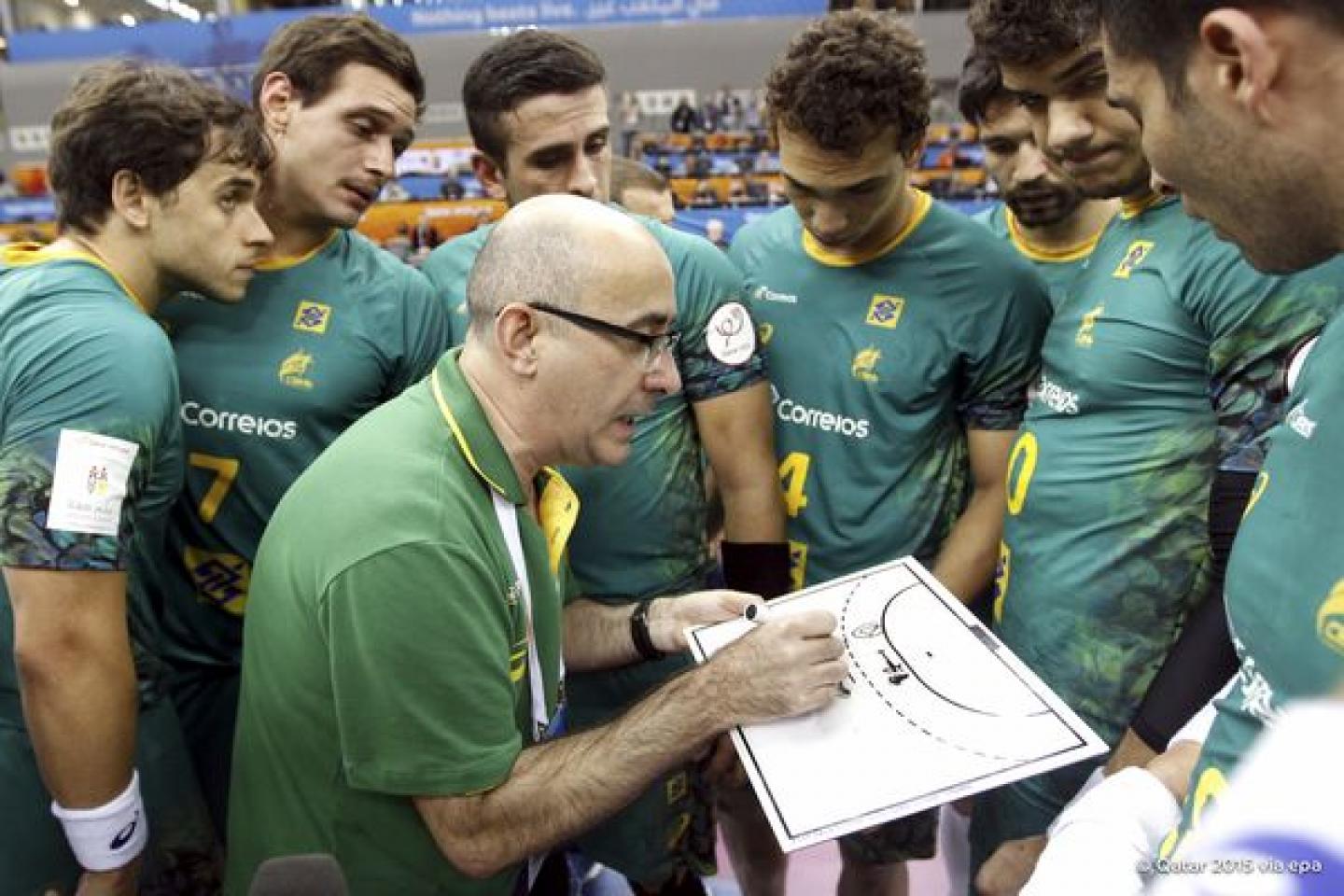Ribeira's Big Plan for Brazil
27 Jan. 2015

After being eliminated at the hands of Croatia in the Eighth-Finals, the disappointment felt by Brazil was clear to see. But the Pan American team can reflect on the tournament overall with great satisfaction as they look toward the 2016 Olympic Games in Rio.
Though Brazil opened their World Championship campaign with a discouraging loss against hosts Qatar on the first night of matches, the side have since put in consistently strong performances that saw them pushing big teams they could not have challenged ten years ago.
Against 2013 World Champions Spain they recorded only a two-goal deficit at the end of sixty minutes, and had strong enough results in the rest of their matches to put them through to the Eighth-Finals.
Considering Brazil have finished in the top 16 only three times since they began consistently qualifying for the World Championship in 1995, not to mention the nation’s obsession with football, they are not a country strong with handball tradition.
But the recent success of the women’s team, the men’s performance at this championship and the upcoming Olympic Games have helped push the profile of Brazilian handball higher. With the expert guidance of Jordi Ribeira at the helm, there is surely no way to go but up.
A new era for Brazilian men’s handball began when Ribeira took over as coach of the national side for the second time in 2011.
Having coached the Brazil national team from 2005 to 2008, Ribeira knew what was needed to help Brazilian men’s handball move forward.
“Before I made the contract with Brazil I explained that I want to work with the adults, with the seniors, but I also want one big project for all – the youth players, the junior players and the adults. For me this is very important.
“Now, in my head, I know the players that will play in 2020. Now, these players are 14 years old, but I think if they work they can make it to the Olympic Games. This is important from my perspective – to work with players of all ages. We have things happening for the young players – those under 14 and those under 16. Every year, they work and they get better.
“The junior team and the youth team play the same as the adults – the same attack, same defence, similar system. This is important.”
Ribeira was the head coach of the Brazil youth team at the Junior World Championship in 2013 when Brazil lost by just two goals against Croatia to be eliminated in the Quarter-Final stage – a result that indicates a stronger generation of Brazilian players are coming through under Ribeira’s guidance.
In the meantime the senior team have been steadily improving, as evidenced by this World Championship. Brazil’s losses against Spain and Slovenia were decided only in the final few minutes of the game, and both were by just a few goals, which Ribeira says would not have been possible a few years ago.
“Seven years ago it was more difficult for us to play against Spain or Slovenia. Usually the deficit was 10 goals. Now we get to the last five minutes and it is possible for my team to win the match. This is one step.
“This is the path – one step at a time. In one or two years I think it will be possible to get to the last five minutes with a real chance to win.”
Ribeira’s goal since re-joining Brazil was to build a new team, with a focus on the development of young players, and this remained the key in Qatar 2015.
“I think for a national team it is necessary to have a mix of young players and experienced players. With this the team can be very strong.
“New players need experience, they need games in the national team – it is not the same as games in your club when you go to play for Brazil.
“At this World Championship there are three players in the starting line-up of only 20-21 years. Now it is very difficult because the players are very young; they need experience. For us this is the most important focus in this World Championship.”
Ribeira’s focus may be on up-and-coming players, but the secondary goal is to refine the small things that will help the current team achieve their best in the years ahead. With this combination, he believes Brazil’s time will come.
“More experience for the young players and improvement from the goalkeepers – these things will change the story of our matches. Four years ago it was more difficult for us to play these teams. Now, the team has a chance. I think it needs work, work, work, and then the moment will arrive.”

